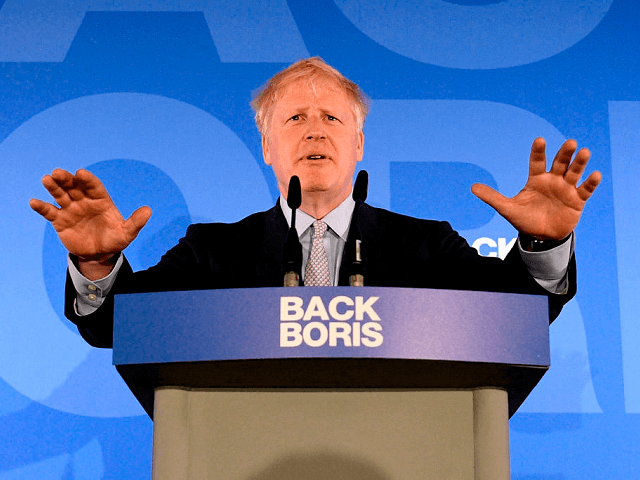Boris Johnson’s allies have claimed that the prospective prime minister is planning to hold another snap General Election by summer 2020.
Senior allies of Mr Johnson told The Times that plans were being outlined to hold a vote in the next year. The Tories believe they should strike whilst Labour is considered in a weak position under Jeremy Corbyn, whose leadership has been rocked by accusations of personal and party antisemitism and criticism of Labour’s longstanding lack of a coherent position on Brexit.
A senior source told the newspaper of record: “There’s a desire to get this done while Corbyn is still around. Labour is utterly divided — Brexit is killing them. Labour is in no fit state to fight a general election.”
Another source in Johnson’s team said: “Jeremy Corbyn being opposition leader is a positive for us. It means we don’t have to spend time doing the groundwork we’ve already done on him on his successor.”
A spokesman for Mr Johnson officially denied that the possibility of another election was being explored, saying: “There are no plans for an election before 2022. The focus is on winning the leadership campaign.”
While Mr Johnson had said that holding an election before Brexit was “folly”, insiders are concerned that post-Brexit and with a working majority of just three, the Tory government could struggle to pass other legislation. The next national vote is scheduled for 2022, but if there is another one by next summer, it would be the third General Election in five years.
Johnson Refuses to Commit to Lowering Immigration https://t.co/QvvXIE3bl7
— Breitbart London (@BreitbartLondon) July 17, 2019
Katie Baylis, a spokesman for British gambling company Betfair said of the changed political odds on the news that Mr Johnson was allegedly considering a snap election: “With reports that Boris Johnson is considering a snap election if he wins the Tory Leadership contest which he is now 1/50 or a 98% chance of doing, we now make it 11/8 (43% chance) that we will see a General Election this year… The Tories are 21/20 (48% chance) of winning most seats whenever the next election does take place with Labour at 9/5 (35%).”
The claim that another General Election is needed to ensure a clear majority to pass key legislation is a similar rationale made by the outgoing prime minister, Theresa May, who called a snap election two years ago.
Speaking to the public from Downing Street in April 2017, Prime Minister May claimed that while her Conservative government had the “right plan” to prepare for Brexit, “political game-playing” from Labour, the Liberal Democrats, and the leftist Scottish Nationalist Party threatened to destabilise the government and frustrate Brexit.
At the time, the Tories believed they could capitalise on its strong poll ratings and strengthen their position in the Commons by gaining more seats in the June 2017 vote. However, the Tories overplayed their hand and underestimated Labour, with the Tory government going from 331 seats in the House of Commons — more than the 326 needed for a majority — to 318, with the Conservatives unable to command a government without a confidence and supply agreement with the conservative, Northern Irish Democratic Unionist Party’s 10 MPs.
According to the Britain Elects website, the Labour Party is slightly ahead of the Tories in a rolling average of polls.
Report: 43 Tory Brexiteers to Block a Johnson EU Bill, Push for No Deal https://t.co/fnZIYU2Tgm
— Breitbart London (@BreitbartLondon) July 16, 2019
A further frustration for the governing Conservative Party is Nigel Farage’s Brexit Party, which utterly defeated the Tories in the recent European Union elections. Speaking to Breitbart last week, Mr Farage warned that “it’s actually impossible for Johnson to win if the Brexit Party’s fighting against him”, suggesting the Conservatives may have to forge an agreement with the rival party to gain power again.
The election speculation came as a source in Mr Johnson’s camp confirmed to Sky News that the Tory leadership frontrunner is considering sending MPs home for two weeks in the autumn before the Queen’s speech, with an insider telling the broadcaster: “A number of ideas are under consideration, including this one.”
Parliament is usually prorogued for one to two weeks before the Queen’s speech, and if timed before Brexit day on October 31st, would stop Remainer MPs from trying to stop a no-deal exit.
While critics have said that the move could also stop parliament passing key legislation to pass a deal with the EU, the next president of the European Commission, Ursula von der Leyen, on Tuesday ruled out renegotiating the deal, with the EU set to reject any proposed amendments on the Irish backstop made by the next prime minister.

COMMENTS
Please let us know if you're having issues with commenting.